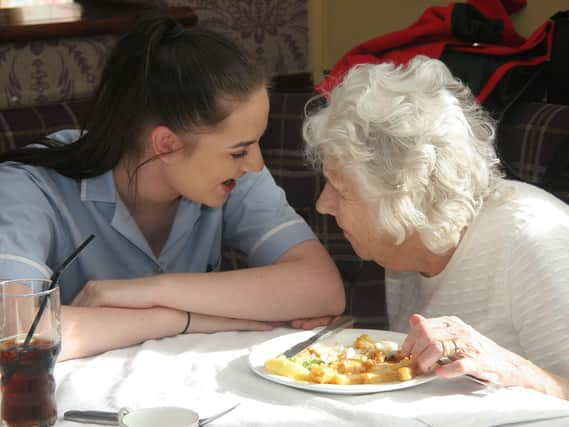Many key workers are not earning enough to live on, research shows


Hundreds of thousands of jobs in the region pay less than the real living wage of £9 an hour, which is a measure of how much someone needs to earn in order to have a decent standard of living.
Advertisement
Hide AdAdvertisement
Hide AdThe figures have improved slightly compared with 2018, when more than a quarter of jobs in Yorkshire were below the real living wage.
There are nearly 2.6 million key workers in professions which routinely earn less than the real living wage in Yorkshire, the research highlighted.
Roles more commonly carried out by women, such as nursery nurses, carers and teaching assistants were more likely to be underpaid, the research showed, however, many male-dominated professions like waste disposal and security, also had large numbers of workers who earned less than the real living wage.
The GMB union said the coronavirus crisis had shone a light on the “rock-bottom pay” of the people “expected to risk their health to protect us”. It says more than three million workers across the UK could be affected and called for key workers’ wages to be raised.
Advertisement
Hide AdAdvertisement
Hide AdEconomists have, however, urged against further wage rises before the full toll of the crisis is clear.
The Low Pay Commission, an independent body which advises the government, warned it might be necessary to apply an "emergency brake" on long-term plans to continue to lift the statutory minimum.
The Department for Business, Energy and Industrial Strategy said: "It is right we ensure the lowest paid are fairly rewarded for their contribution to the economy, particularly those working in essential services during the biggest threat this country has faced in decades.
"This year's increase to the National Living Wage means we will be putting an extra £930 a year into the pockets of 2.4 million of the UK's lowest paid workers."
Advertisement
Hide AdAdvertisement
Hide AdThe National Living Wage is the legally-binding hourly rate for workers aged 25 and over. It is reviewed every year just like the National Minimum Wage (for under-25s). It was uplifted to £8.72 an hour on 1 April.
The real living wage is separate and was devised by charity the Living Wage Foundation. It argues the government's National Living Wage is not high enough to meet workers' needs and encourages employers to adopt to its more generous, independently-calculated rate.
Katherine Chapman, director of the Living Wage Foundation said: "It's incredibly important that key workers are paid a real Living Wage. These are the hospital cleaners, the shelf-stackers and the carers who are putting their health on the line to keep us safe, and to keep our economy and society running.
“For those employers that can afford to do so, it is important that they continue to support workers with a Living Wage."